Exploring the important bond between Northern Ireland and Glasgow Rangers FC
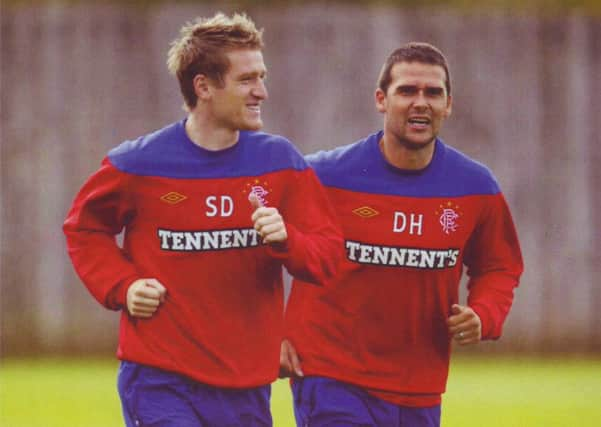

Billy Kennedy’s latest book is a departure from his usual subject matter but one which will no doubt appeal to his loyal readership while drawing a new audience of football supporters around the globe.
The veteran journalist, who has written 13 books on the Ulster-Scots (Scots-Irish) in America, has just had published his first footballing compendium detailing the Ulster connection to the famous Glasgow Rangers.
Advertisement
Hide AdAdvertisement
Hide AdThose Ulster ties are traced back to the birth of the club when brothers Moses and Peter McNeil, whose mother Jean Bain came from Bellshill near Downpatrick in Co Down, set the club in motion in 1872.
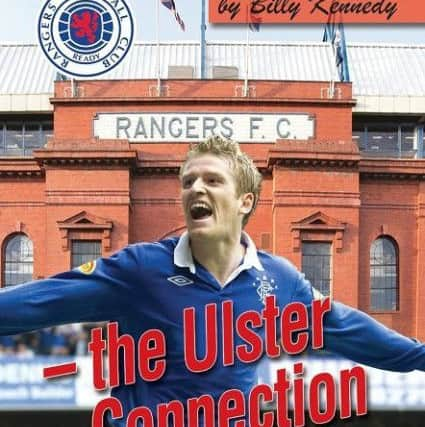

Billy’s three-year research has come up with 32 players with an Ulster or Irish connection who played first team football for Rangers from 1872 until the present day.
Billy said: “A number of players identified may only have played a small number of senior games for Rangers, but, just like those who had long and successful careers at the club, they deserve recognition in reaching the threshold required to wear the famous royal blue of Scotland’s best.”
Three of the 32 players featured in the book had the honour of captaining Rangers – Bertie Manderson, John McClelland and Steven Davis – while Canadian-born and Belfast-reared player Jimmy Nicholl won five trophies with the club before returning as assistant manager.
Advertisement
Hide AdAdvertisement
Hide AdBilly` writes: “The Ulster-born players at Rangers through the decades came from all parts of the province – Belfast, Lisburn, Cullybackey, Ballymoney, Larne, Newtownabbey, Carrickfergus, Newry, Killyleagh, Magherafelt, Aghadowey, Enniskillen, Omagh and Dungannon.
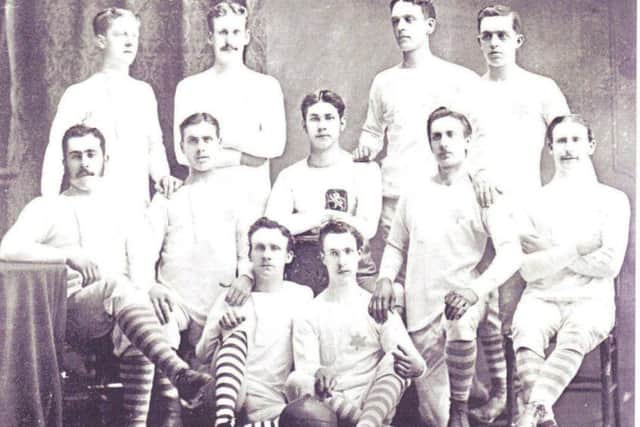

“Many of the early Ulstermen at Rangers were recruited without transfer fees but several transfer transactions involving Ulstermen do catch the eye.
“Full-back Billy McCandless was signed by Rangers from Linfield in 1920 for a fee of £2,500, money considered a record for an Irish player at the time.
“In 1950, centre-forward Billy Simpson made the move from Linfield to Ibrox Park for a fee of £11,500, a club record for Rangers at the time. What would those transfer amounts be today in modern currency?”
Moses’ legacy
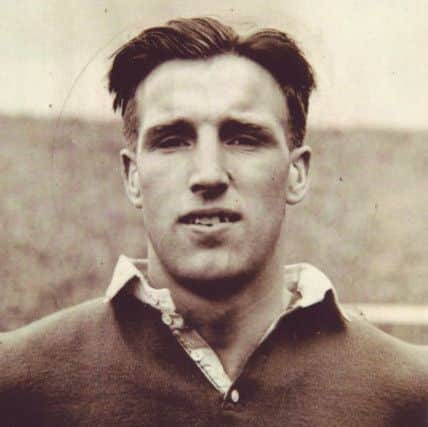

Advertisement
Hide AdAdvertisement
Hide AdWithout Moses McNeil there may never have been a Rangers Football Club.
Born in 1855, Moses – recognised as the founding father of the club in February 1872 – had an Ulster-born mother and Scottish father.
Moses formed the first Rangers team with brother Peter, who ran a sports shop in Glasgow, and friends Peter Campbell and William McBeath.
It was Moses who christened the team Rangers, derived from the name of a famous English rugby club.
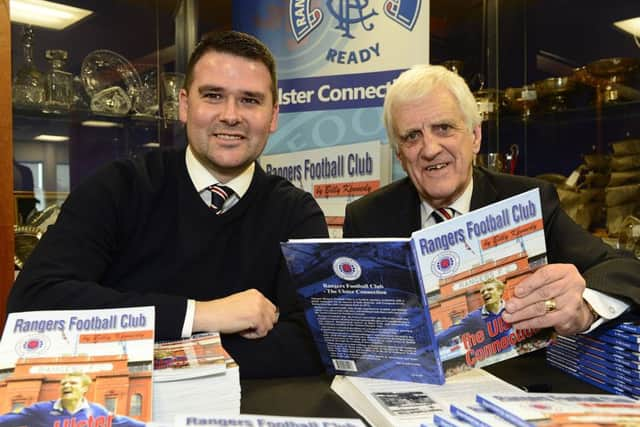

Advertisement
Hide AdAdvertisement
Hide AdThree McNeil brothers – Moses, Peter and Willie (William) – played in the club’s first season in 1872. Another brother Harry also played for the club.
Rangers official historian David Mason said: “Moses remains one of the most significant characters in the club’s history. He was an accomplished athlete and he lived long enough to see the club he formed become a world-renowned institution.”
Moses played for Rangers for 10 years, appearing in 141 games and scoring 41 goals. He played in the 1877 and 1879 Scottish Cup finals and was a member of the first Rangers team to lift a trophy – the Glasgow Merchants Charity Cup in 1879.
Another famous Ulster Ger was north Belfast-born full back Bertie Manderson, who had a highly distinguished 15-year career career at Ibrox Park between 1912 and 1927.
Advertisement
Hide AdAdvertisement
Hide AdBertie played Irish League football with Cliftonville, Belfast Celtic and Glenavon before signing for Rangers where he established an effective partnership with another Ulsterman Billy McCandless.
Bertie, known to fans as ‘Daddy Long Legs’, had at one time held the record for appearances for Rangers – 488 – between 1915 and 1927.
Billy Simpson, another Rangers great – and to whom the book is dedicated – scored 93 goals in 143 appearances for Linfield before moving to Ibrox.
His rise through the ranks at Rangers was meteoric, setting the bar high by scoring a hat-trick on his debut, the first of his 189 goals in 294 appearances, which earned him the nickname ‘King Billy’.
Advertisement
Hide AdAdvertisement
Hide AdHe also helped Northern Ireland reach the 1958 World Cup finals but missed the tournament through an injury picked up in training.
Billy remained with his family in Glasgow after his football career ended, working at Clydeside shipyard, where one of his apprentices was a certain Alex Ferguson.
Loyalty of fans
Compared to their fierce rivals, in his book Billy observes that Celtic have had 13 senior players from the province of Ulster – from the late, great Bertie Peacock through to current NI international Niall McGinn, and also four Ulster-born managers.
In the book, Billy also has a look at Northern Ireland’s 60 Rangers supporters’ clubs and groups, with members who travel regularly to Ibrox Park.
Advertisement
Hide AdAdvertisement
Hide AdHe writes: “The loyalty and dedication shown to Rangers by the huge Ulster fan base manifests itself by long bus and ferry journeys of up to 18 hours for supporters, many from rural parts of Northern Ireland to what they see as the ‘Shrine’ at Edmiston Drive/Copland Road in south-west Glasgow.
“The 40-minute trek by plane from Belfast to Glasgow remains the choice of a minority of fans, and, while less time consuming, the short journey perhaps does not produce the same enjoyment or camaraderie that one finds in the company of like-minded mates on board a bus and ferry for most of a day.
“For a great many Ulster men and women the regular trek across the North Channel to see the Glasgow Rangers has become a way of life.”
Reflecting on the book’s theme Billy writes: “Whatever its modern global image, Rangers has always been a family club, with the Scottish and British culture and ethos deeply ingrained in its psyche. From its early years, Rangers reached out to recruit players who were not Scots and close links across the North Channel to the north of Ireland persuaded young Ulstermen that this was the club that they wanted to play for, and indeed support.
Advertisement
Hide AdAdvertisement
Hide Ad“When I was first persuaded several years ago to research and compile this book, I was aware of the famous players who trod the turf at Ibrox Park with distinction – household names in their day in Scottish and British football and whose footballing skills helped achieve the unparalleled success that we today associate with the Rangers.
“A significant number of these players had an Ulster/Irish connection and the contribution they made is evident that no fewer than six from this diaspora were elevated to the Rangers ‘Hall of Fame’.”
Captain Davis
Northern Ireland captain Steven Davis, talking in the book about his first spell at Rangers, said: “I think the fans could see I was a player who would always give 100 per cent and the backing I got was very special for me, especially at Ibrox.
“When I played at Ibrox there were other Ulster lads, including David Healy, Andrew Mitchell, Kyle Lafferty and Chris Hegarty.
Advertisement
Hide AdAdvertisement
Hide Ad“We blended well with the Scottish lads and the foreign players.
“The Rangers brand is worldwide; for me it was a thrill to wear the Royal Blue jersey.
“You think you understand the size of Rangers especially growing up as a fan, but it’s not until you are living in it that you realise the true size and demands of the club with 50,000 fans present at home games.
“I was very fortunate to have had a lot of success in my time.
Advertisement
Hide AdAdvertisement
Hide Ad“Back home, I got great support from the many Rangers fans in Northern Ireland. Rangers have a huge following in Northern Ireland and, in Ballymena especially, and the fans love to see someone from back home play for the club and do well.”
Billy’s blues
Billy Kennedy is a life-long Linfield supporter and a board member of the club for 45 years.
He also has an “abiding passion” for Rangers Football Club which goes back almost 60 years.
He writes: “Dual loyalties are not uncommon in football, but provided the interests do not compete within the same jurisdiction, it is quite acceptable to be attracted to two different clubs, albeit in different countries.
Advertisement
Hide AdAdvertisement
Hide Ad“I also have a genuine and abiding interest in Glasgow Rangers Football Club and this can be traced back 58 years to when I first entered the magnificent portals of Ibrox Park after walking along the famous Copland Road.
“As the then young secretary of the Frontier Linfield supporters’ club in Newry, I led a group of about 20 liked-minded guys from counties Armagh and Down to Glasgow to see Rangers play Motherwell in a Scottish League fixture. It was a trip that left a lasting impression on me and, since, I have made countless visits to see the other Blues in my life.
“In the early 1960s, we travelled over to Glasgow from Belfast on the all-night Burns and Laird ferry, landing at the Broomielaw near the city centre and heading directly to the Ibrox Cafe or the Bellahouston Hotel (later called the Swallow) on the Paisley Road West.
“Glasgow Rangers is a mighty club, world-renowned and celebrated in verse and song and in the annals of Scottish history.
Advertisement
Hide AdAdvertisement
Hide Ad“I still have vivid memories of the 1963 Scottish Cup final between Rangers and Celtic before a crowd of 120,000 at Hampden Park. which was drawn 1-1 with Rangers going on to win the replay.”
He added: “My Rangers interest was also complemented by the late Dr Malcolm Brodie, Belfast Telegraph sports editor and a self-acknowledged ‘Bluenose’, who would often reminisce to me, in his broad Glasgow accent, about supporting the Rangers while growing up on Clydeside in the 1930s and early 1940s.”
In the book, Billy recalls teaming up with a Glasgow Celtic supporters’ club in Newry to raise £1,500 for families of the victims of the Ibrox Disaster in 1971.